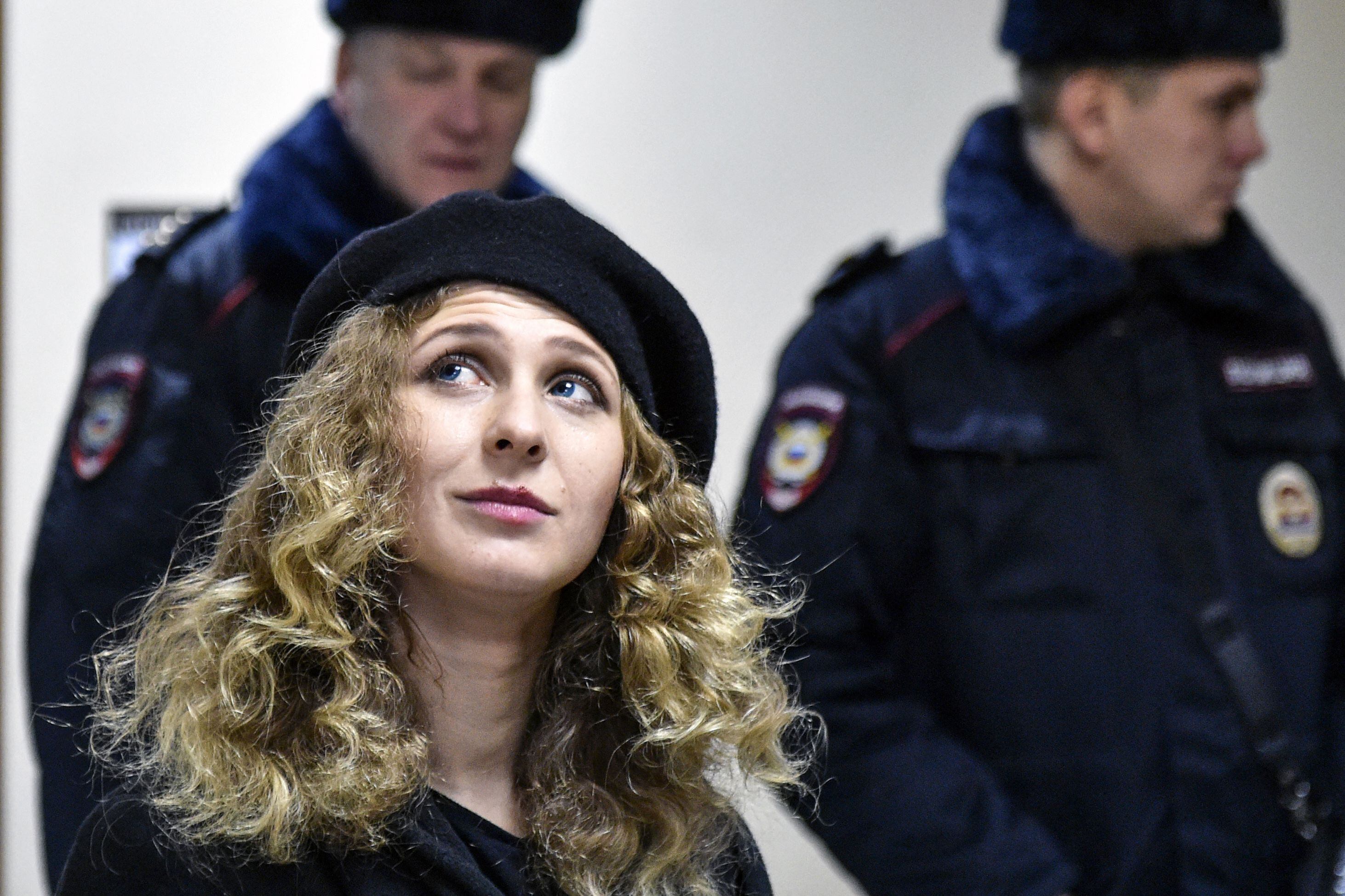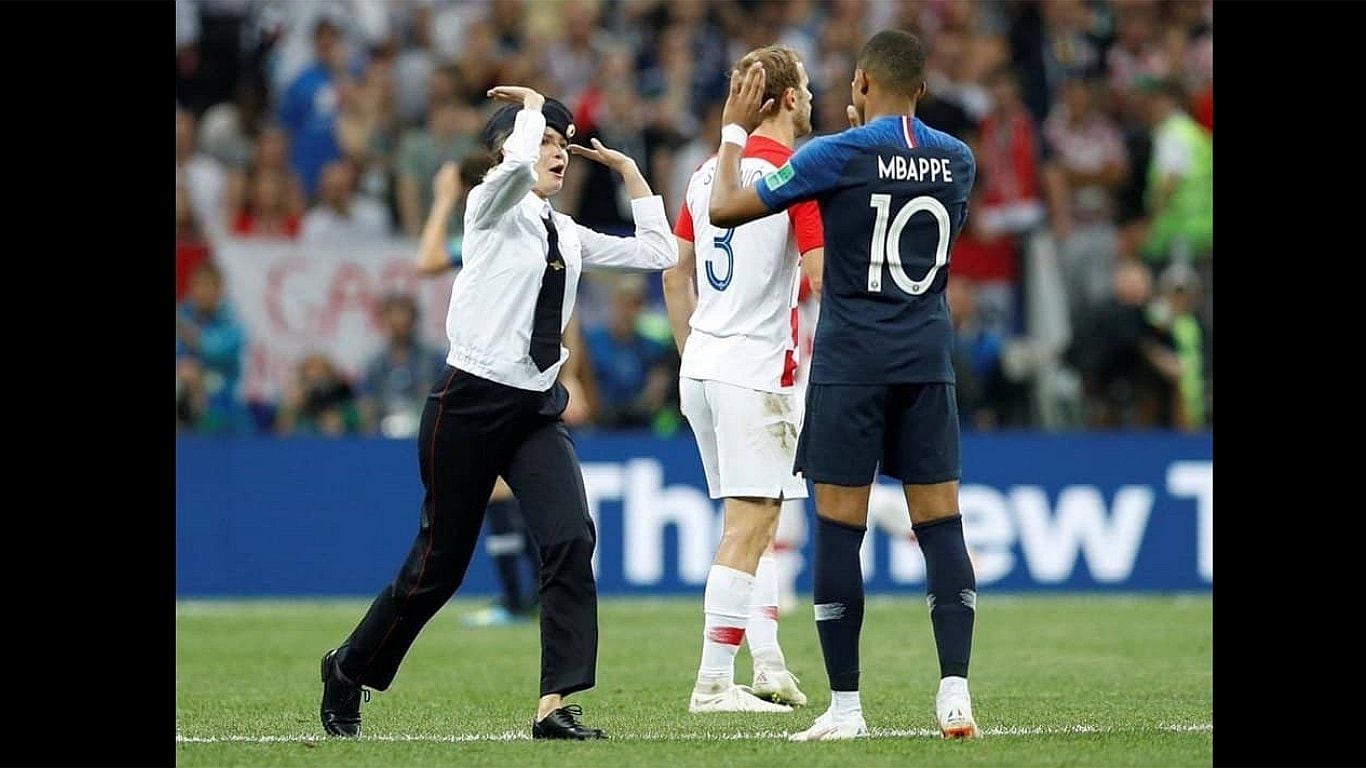On Wednesday, January 24, the seven members of Russian rock band Bi-2 were detained by Thai immigration authorities and risked being deported to their country, where they are accused of “supporting terrorism.” because the lyrics of your songs are generally critical. the government of Vladimir Putin and the war unleashed in Ukraine.
TO LOOK: NATO launches Steadfast, its largest military exercise since the Cold War
Citing a problem with visa documents, the gang members were detained on the resort island of Phuket. VPI, the event management company tasked with organizing the band’s visit, admitted it was guilty of “incorrectly issuing tourist visas to the band members, resulting in a violation of Thai immigration law.”
However, at the same time he assured that since December he had been receiving “pressure from the Russian consulate” in Thailand with the aim of canceling the concert.
Bi-2 also reported that during 2023 it held shows in Thailand and such documents were not required.
The most serious thing, however, was the decision that the Thai government could make with the members. While detained at an immigration center in Bangkok, local authorities were evaluating the option of deporting the seven defendants to Russia.
Egor Bortnik, known by his stage name “Lyova”, is a fierce critic of Vladimir Putin. Last year, for example, he used his social networks to accuse the president of “to destroy”to the country, in reference to the war with Ukraine.
These types of statements add to many other statements by the band against Putin’s military campaign in Ukraine, which led them to be considered by the Russian Government as a group that “supports terrorism”.
In 1985, Lyova and her friend Aleksandr “Shura” Uman launched the band “Bratya po Oruzhiyu” (Brothers in Arms) in their homeland Minsk, then part of the Soviet Union and capital of present-day Belarus.
Three years later, the band refounded itself under the name “Bereg Istini” (Truth Insurance), whose initials gave way to the current Bi-2. The Jewish ancestry of the two band members led them to obtain Israeli citizenship in the early 1990s, while at the beginning of the millennium they managed to enter the Russian market.
In 2000, as Putin was settling into the Kremlin after surprisingly succeeding Boris Yeltsin, Bi-2 began to become popular thanks to some of his songs that were used in Aleksei Balabanov’s famous film Brother 2.
With “Miau Kiss Me” (2001) and “Inomarki” (2004) the band consolidated its success in the Eurasian giant, appearing frequently since then in the rankings of albums sold and most famous video clips.
The start of the war in Ukraine in February 2022, and subsequent measures taken by Putin to silence those who opposed his military campaign, led Bi-2 to become an acid critic of the Kremlin.
According to Human Rights Watch, this led the Ministry of Justice to designate Bortnik as “foreign agent” per “oppose the “special military operation” in Ukraine, (and) make negative statements about Russia, its citizens and authorities”.
After that, the members of Bi-2 decided to go into self-exile, the same fate suffered by hundreds of thousands of Russians after the start of the war and which led to them being considered “traitors and enemies“, in addition to “a risk to Russia’s political stability, a national security problem“, as Tatiana Stanovaya, political scientist and founder of the think tank R. Politik, explained to AFP.
For this reason, in addition to HRW, Amnesty International or the leader of the Belarusian opposition in exile, Sviatlana Tsikhanouskaya, feared that her deportation to Russia could lead to legal persecution for her position.
Fortunately for the musicians, on Wednesday, January 31, Thai authorities agreed to deport them to Israel on the basis of their second nationality. Lyova arrived in Tel Aviv that same night, while the rest of the band arrived the next day.
Exiled opposition politician Dmitri Gudkov assured that the deportation of the Bi-2s to Israel involved an arduous diplomatic effort in which American, German, Israeli and Australian authorities intervened, because their Russian counterparts sought to take them to their territory for all possible means.
“The pressure was very strong. We are surprised,” Gudkov told AFP. This is due, he speculates, to the Kremlin’s concern about the band’s popularity ahead of March’s presidential elections.
However, those from Bi-2 were not the only artists persecuted by Putin’s fist. Last week, comedian Maxim Galkin claimed he was denied entry to Indonesia in response to a letter from the Russian government.
This was also the second time something like this happened to him, after receiving the same response a month ago in Thailand. Russian rapper Alisher Morgenshtern recently stated that he was banned from entering the UAE without official reason.
It should be noted that just like Bi-2, Galkin and Morgenshtern appear on the list of “foreign agents” in Russia.
The persecution of so many uncomfortable voices appears to be an evolution in the way Putin’s government responds to its critics. To this end, it would be appropriate to remember the arrest, in 2012, of Maria Alyokhina and Nadezhda Tolokonnikova, members of the punk rock band Pussy Riot.
The singers were sent to prisons in the Ural Mountains and Siberia, respectively, after performing in the center of Moscow where they criticized the Russian Orthodox Church and Vladimir Putin after his re-election.

In February 2014, during the Sochi Winter Olympics, the group attempted to sing the song “Putin will teach you to love the motherland”, but its members were violently detained by a group of supposed Cossacks who “caught them and pushed them ” before attacking. with whips, pepper spray and even their own guitars, according to the European Court of Human Rights, which in August 2023 ordered the Russian State to compensate them with almost 25 thousand dollars each of the victims.
In 2018, Pussy Riot would once again make global headlines after four of its members entered the field during the World Cup final between France and Croatia. The group assured that it carried out this act in protest against human rights abuses in the country.
With the war in Ukraine, several of its members – including Maria Alyokhina – decided to avoid the house arrest they were subject to and flee the country for fear that repression would increase.

Source: Elcomercio
I am Jack Morton and I work in 24 News Recorder. I mostly cover world news and I have also authored 24 news recorder. I find this work highly interesting and it allows me to keep up with current events happening around the world.

:quality(75)/cloudfront-us-east-1.images.arcpublishing.com/elcomercio/Z5YU3Y57KZD4VBUH5KRJZZ7CUM.png)

:quality(75)/cloudfront-us-east-1.images.arcpublishing.com/elcomercio/7UP36SD2RFFVXP6J2Q274SPQNE.jpg)
:quality(75)/cloudfront-us-east-1.images.arcpublishing.com/elcomercio/VNKVF3HCAJCZTCBTQGMOOLZNM4.jpg)
:quality(75)/cloudfront-us-east-1.images.arcpublishing.com/elcomercio/J6VYSYWV3BHRJDGU6JRF3MH4YY.jpg)
:quality(75)/cloudfront-us-east-1.images.arcpublishing.com/elcomercio/UCZ4YPC47RDURN5O63M6BJFQWA.jpg)
